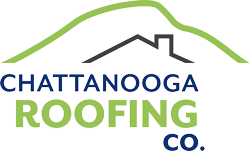The Benefits of a Metal Roof
A metal roof is a popular choice for today’s facility executives prioritizing longevity, durability, and energy efficiency. They also require less maintenance than shingles and are compatible with rooftop solar panels.
Properly installed over plywood sheathing and recommended underlayment, a metal roof shouldn’t be noticeably louder than a shingled roof during rainstorms. But there are still a few things to consider before making the switch. You’ll be glad you read this!
Durability
Even though metal roofs cost more upfront than shingle roofing, they last longer and require less maintenance over their lifetime, making them more affordable over time. Additionally, they are more energy efficient than shingle roofing and help save on heating and cooling costs.
Durability is a primary reason why more and more homeowners are choosing to install metal roofs. Made of strong metals like steel, tin, and aluminum, these roofs are designed to withstand high winds and extreme weather conditions including heavy snowfall and summer heat.
Metal roofs also offer the benefit of being fire resistant and can reflect the sun’s rays, which helps reduce home cooling costs by 10-25%. One downside to a metal roof is that it can dent easily, especially in areas prone to large hail or falling tree branches. However, these dents typically aren’t severe enough to warrant a full roof replacement. The good news is that a professional metal roof installer can apply special alloy coatings to prevent denting and rusting.
Recyclability
Depending on the material, metal roofs can have 25-95% recycled content. Unlike asphalt shingle roofs, they don’t wind up in landfills when they reach the end of their life. Instead, a metal roof is sent to an approved recycling facility. It is then sorted and purified. The metals are then repurposed for a wide range of uses.
Steel is a popular choice for construction materials because it can be recycled repeatedly without losing its quality or strength. Its recyclability reduces the need for primary resources, saves energy, and decreases waste.
Aluminum is also widely recycled. Like steel, it can be used again and again and requires less energy to produce than raw metals. It can be recycled into new aluminum building products or repurposed for other uses. Metal roofing also helps earn LEED (Leadership in Energy and Environmental Design) points, as it is considered an energy-efficient material. Plus, it is fire-resistant and can withstand harsh weather conditions.
Energy Efficiency
Metal roofs are more energy efficient than shingles, keeping homes cooler and saving money on air conditioning costs. Because they reflect sun rays rather than absorbing them, they also have higher thermal emittance and can release heat faster when it’s time to cool off.
Despite their upfront cost, metal roofs are more affordable than you think. They offer a longer lifespan than shingle roofs, and they’re a lot easier to maintain. Plus, they’re reusable and 100% recyclable – whereas most asphalt shingle tear-off ends up in the trash.
Another benefit of metal roofs is their fire resistance. They’re much less likely to catch fire and are also designed not to attract lightning. This is because lightning seeks a path to the ground, and it’s difficult to find that route through a shingle roof. By contrast, a metal roof is an isolated structural component that can’t be easily contacted by lightning. This can help prevent fire damage and reduce the risk of an insurance claim.
Maintenance
Metal roofs are built to withstand the elements and can last longer than other roofing materials, but they do require regular maintenance to keep them performing at their best. General inspections should be conducted at least twice a year, especially following severe storms.
Structural inspections can be performed by a licensed roofing contractor or a professional roof maintenance service*. A thorough check of all the panels to ensure they’re not loosened, dislodged, or damaged can help prevent water leaks.
*Structural maintenance can also include the application of additional sealant where necessary. It’s important to apply any required coatings in a timely fashion to avoid future problems.
It’s also a good idea to regularly clean your gutters and drains to prevent leaves, sticks, and other debris from building up. This can cause clogging and the pooling of water that can corrode your roof panel surface. You should also keep branches and shrubs trimmed to avoid overhanging and touching the roof, as they can scratch or dent it. Next article.

